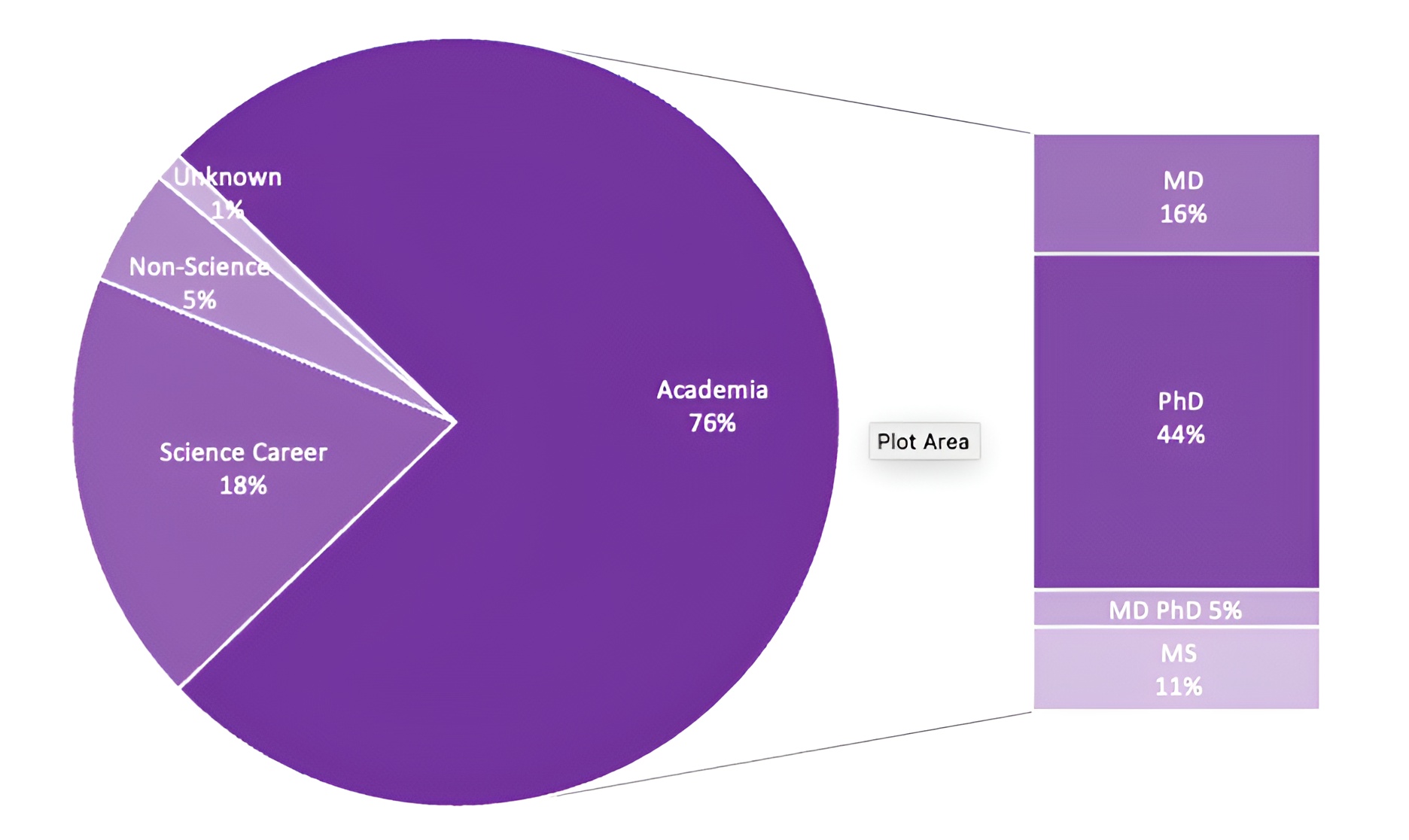
Neuroscience Research Associates Program
In the Department of Neuroscience, our research associates gain valuable technical skills and research experience before moving on to advanced degree programs, with the aim of a career in biomedical science.
Our research associates (RAs) have access to the following:
- an intellectually stimulating and collegial environment
- state-of-the-art technology and resources
- research projects led by world-class scientists in a range of disciplines that includes molecular biology, biochemistry, genetics, physiology, cognition and behavior, sensation and perception, and systems neuroscience
We foster a diverse, inclusive, and supportive community to help our research associates excel in their career paths.
Research Associates Program Events
As part of the Research Associates Program, we offer a series of events that support the transition from research associate to graduate student. We also host events that empower our research associates through personal and professional development.
Graduate School Admissions Panel
Each year we host a panel with faculty from both uptown and downtown campuses to discuss the application process. Our faculty provide insight into what they look for in an applicant, how to craft a personal statement, and what value they place on different areas of an application.
Personal Statement Series
To assist with graduate school applications, we host a Personal Statement Seminar where we discuss key elements of the essay. The seminar is followed by a Peer Review Workshop to polish statement drafts.
Dos and Don’ts of Interviewing Panel
Every year we select a panel of our grad students to share their interviewing experience and provide pointers on how to interview. Topics cover how formal is an interview, what questions to ask current lab members, and how in-depth should you discuss your research.
Research Associates Program Roundtable
Our research associates meet quarterly to discuss research and hone their presentation skills.
Wellness Series
Research associates meet to discuss issues, encourage personal development, and foster community through planned activities.
Activities have included workshops on cultivating a competitive CV, science storytelling, financial literacy, and goal-setting.
Our trainees are invited to participate in our weekly Group Meeting, Joint Neuroscience Colloquia series, and Seminars by Postdocs in Neuroscience: Extramural Series (SPiNES). These events provide a chance for research associates to engage with the neuroscience community. Through our speaker series you are exposed to different areas of neuroscience across trainee levels (grad students, post docs, and even external principal investigators) and have the opportunity to ask questions.
As a member of the NYU Langone organization, you will be eligible for benefits. The research associate salary starts at $47,034 annually. We encourage all interested students and recent graduates to apply, and we accept international applicants on a case-by-case basis.
How to Apply
The application portal opened Friday, January 23, 2026.
The deadline to apply is Friday, April 24, 2026. Application materials must be submitted by the deadline to be considered.
You will need the following to apply:
- CV
- a one (1) page statement of purpose
- two (2) letters of recommendation are required.
- You will be asked to provide the contact information for your two recommenders, and we will contact them directly to upload their letters.
Apply via our online application portal.
For questions about the program or the application process, please email Gabriela Serrano, administrative manager, at Gabriela.Serrano@NYULangone.org
Participating Labs
Below are labs participating this cycle in the 2026 Research Associates Program. Please note that other labs may be added to this list throughout the cycle.
Dasen Lab
The laboratory of Jeremy S. Dasen, PhD, studies the development and function of the motor system, using mouse, chick, and other vertebrate model systems. Familiarity with research in the neurosciences is desired but not required. The research associate position requires familiarity with the principles behind basic molecular biology techniques and genetic analyses of mice. This includes some laboratory experience in molecular cloning and analysis of recombinant DNA, both from bacterial strains and from genomic DNA isolated from mouse tissues. The applicant should also be familiar with principles behind performing polymerase chain reactions (PCR), animal research, and histological analysis of tissue sections. The applicant will receive additional training on the execution of these methodologies by the employer. Applicant must have a B.S. or B.A. in biomedical, physical, or natural sciences. A minimum commitment of two years is desired. Learn more about the Dasen Lab.
Froemke Lab
The laboratory of Robert C. Froemke, PhD, studies synaptic plasticity and behavior, with a focus on how sounds acquire meaning. We are looking for a full-time salaried research technician to assist with behavioral experiments in rodents. Our lab is a supportive and pro-social environment, and we aim to foster career development at all levels. Learn more about the Froemke Lab.
Schoppik Lab
The laboratory of David Schoppik, PhD, studies the development, function, and dysfunction of the vestibular system. We wonder about things such as “How do you build a brain that can balance a body?” and “How can we use what we know about balance to understand brain disorders?” We use an exciting and powerful model system, baby zebrafish, to make progress on these fundamental questions. We are looking for someone who is excited to be part of a supportive team of bright and capable scientists. Previous technicians have published their own papers, built microscopes, and recorded electrical activity from neurons while a fish was trying to balance. They have gone on to either PhD or MD programs. For this position, temperament is more important than any particular skill: you need to be honest, excited to learn new things, and comfortable making mistakes. It helps if you can already code (any language), but it is more important that you’re willing to learn. Learn more about the Schoppik Lab.
Post-Program Placement
